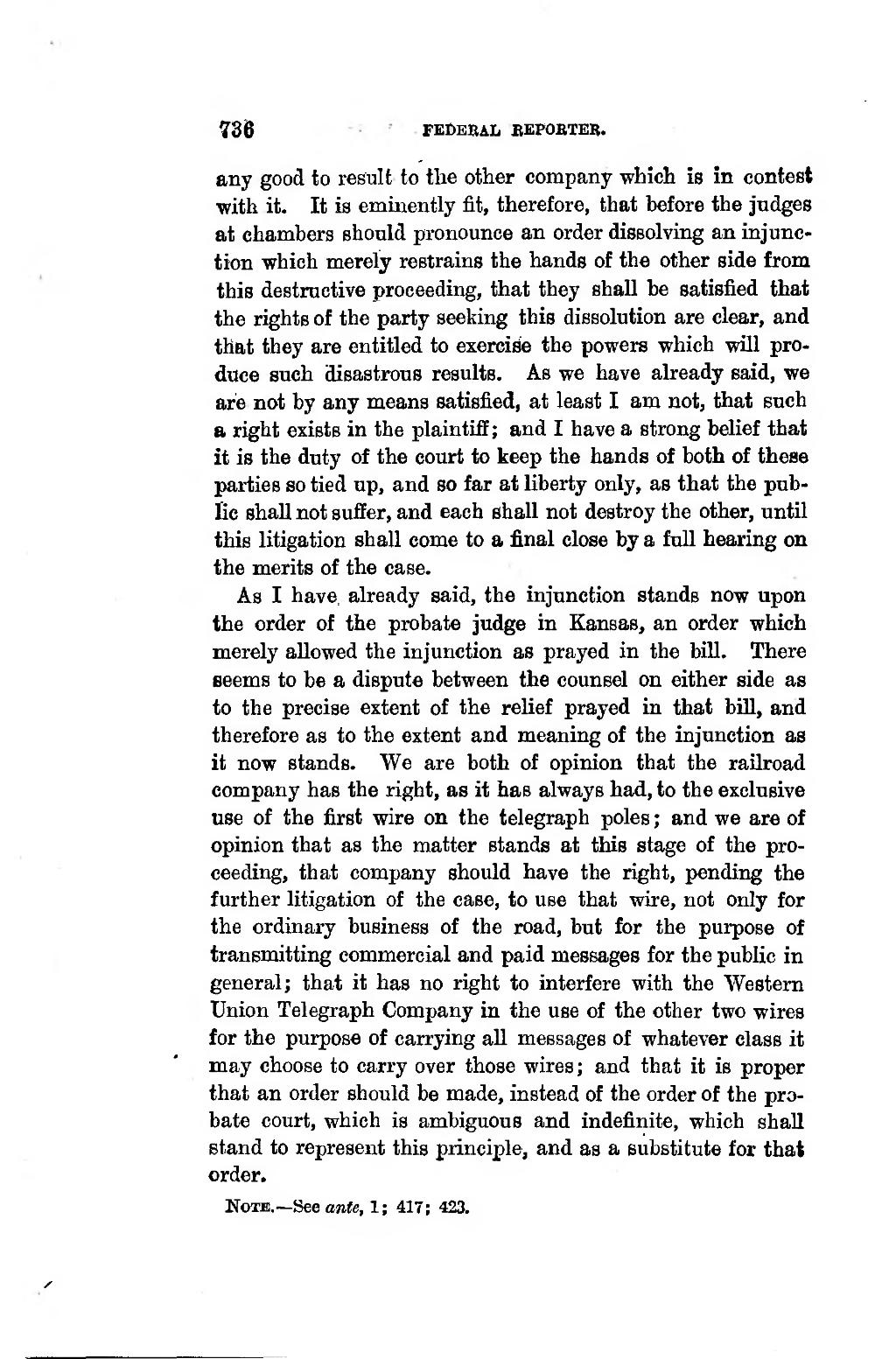736 FEDERAL REPORTES. �any gooà to resuit to the other company whîch is in contest with it. It is eminently fit, therefore, that before the judges at chambers should pronounce an order dissolving an injunc- tion which merely restrains the hands of the other side from this destructive proceeding, that they shall be satisfied that the rights of the party seeking this dissolution are clear, and that they are entitled to exercise the powers which will pro- duce such disastrous resulta. As we have already said, we are not by any means satisfied, at least I am not, that such a right exists in the plaintiflf; and I have a strong belief that it is the duty of the court to keep the hands of both of these parties so tied up, and so far at liberty only, as that the pub- lic shall not suffer, and each shall not destroy the other, until this litigation shall corne to a final close by a fuU hearing on the merits of the case. �As I have, already said, the injunction stands now upon the order of the probate judge in Kansas, an order which merely allowed the injunction as prayed in the bill. There eeems to be a dispute between the counsel on either side as to the precise extent of the relief prayed in that bill, and therefore as to the extent and meaning of the injunction as it now stands. We are both of opinion that the railroad company has the right, as it has always had, to the exclusive use of the first wire on the telegraph pôles ; and we are of opinion that as the matter stands at this stage of the pro- ceeding, that company should have the right, pending the further litigation of the case, to use that wire, not only for the ordinary business of the road, but for the purpose of transmitting commercial and paid messages for the public in general; that it has no right to interfere with the Western Union Telegraph Company in the use of the other two wires for the purpose of carrying ail messages of whatever class it may choose to carry over those wires; and that it is proper that an order should be made, instead of the order of the pro- bate court, which is ambiguous and indefinite, which shall stand to represent this principle, and as a substitute for that order. �NoTB.— See anfe, 1; 417; 423. ����
